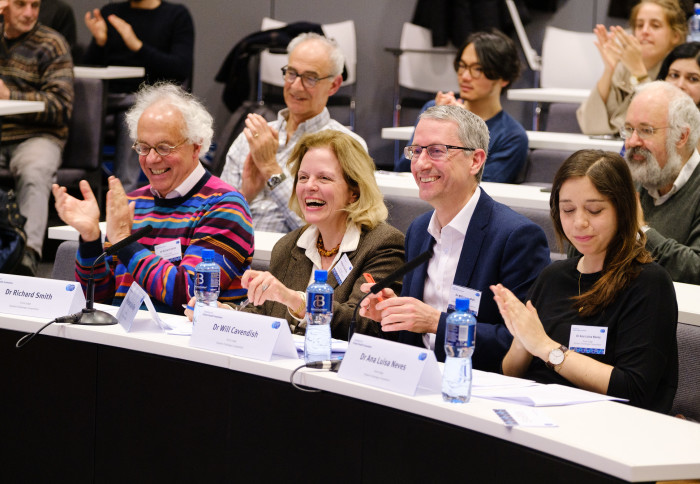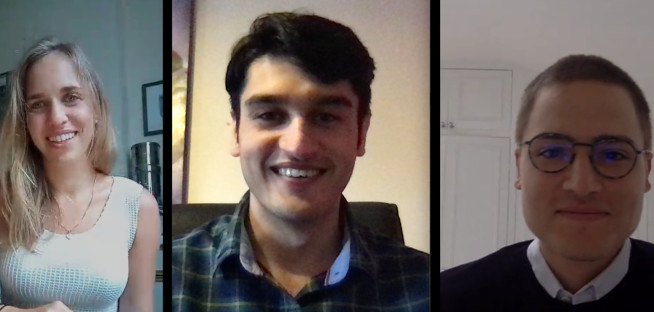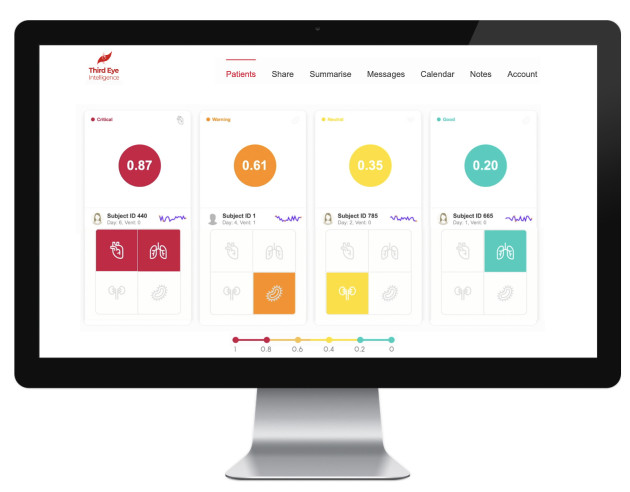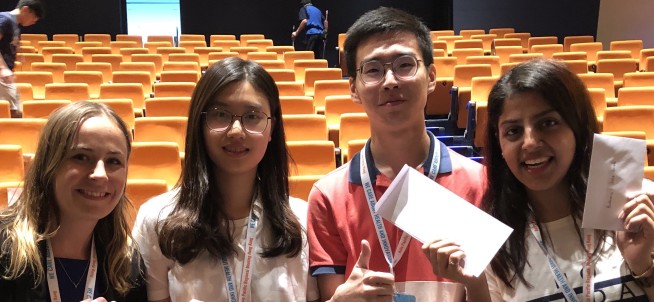AI-driven risk prediction tool for organ failure wins Imperial student event

Image credit: Owen Bitcliffe
The Institute of Global Health Innovation has crowned the winner of its annual Student Challenges Competition.
This year’s new prize fund of £10,000 went to Third Eye Intelligence. The idea, an artificial intelligence-powered risk prediction tool for organ failure, was pitched to a judging panel on Tuesday night at the virtual competition final.
Third Eye Intelligence beat five other finalists to take home the top prize. The competition showcased the range of innovative global health ideas among UK university students. These included a probiotic treatment for recurring urinary tract infections, a battery-powered washing machine for low-and middle-income countries and a prediction tool for infectious disease outbreaks such as COVID-19.

Out of 33 teams, six were shortlisted for the final. Finalists recorded six-minute pitches for their ideas which were assessed by three judges before the final. At the event, participants had just two minutes to present their ideas, followed by a challenging round of questions from the panel and the audience.
Attendees at the final also chose their winner of the night. The Audience Choice Award went to University College London’s Lotto Tsao for her project, Ovolution. She impressed the audience with her sanitary pad design that can detect early polycystic ovarian syndrome (PCOS) in women.
The winner
Behind Third Eye Intelligence is Imperial PhD student, Samyath Tukra. His platform was inspired by the death of his grandfather who passed away from organ failure after a heart attack. Tukra wanted to improve outcomes for patients admitted to intensive care. For UK patients with one organ failure, the mortality rate is 55.5%. This percentage continues to increase when multiple organs are failing. After further research, Tukra found that doctors, limited by time, were lacking vital information about the patient in one place. 
Third Eye Intelligence gathers important details such as the patient’s medication history, scans, blood tests and past records. Using evolving artificial intelligence, the platform then develops a score for clinicians. This indicates the probability of the patient deteriorating. With this score, the doctor can judge the best course of action for the patient.
Tukra plans to use the £10,000 prize fund to help develop Third Eye Intelligence by expanding his team:
“We are honoured to have been selected as the winners of IGHI’s 2020 Student Challenges Competition with our evolving AI platform which can predict the critical care of patients in ICU. We plan to use the prize for further product development by accruing bright minds to take on the challenge of solving problems in critical care medicine,” said Tukra.
Growing ideas

The audience chose Lotto Tsao’s Ovolution as their winner of the night. The BSc Biomedical Sciences student is hoping to help women with PCOS, a hormonal condition that can cause difficulties such as a disrupted menstrual cycle and infertility. Ovolution aims to assist women in low-and middle-income countries, particularly in areas where discussing menstrual health is a taboo.
Tsao and her team have designed a sanitary towel which has an in-built screening marker to measure hormones used to detect PCOS. After using the pad, a woman can read the hormone levels using the guidance material provided by Ovolution which can indicate whether they may have PCOS. The team hope this will encourage women to seek medical help if they suspect they have the condition.
For the Ovolution team, the experience of being a part of the Student Challenges Competition has been more than winning the Audience Choice Award:
“We would like to thank the audience for choosing us for the Audience Choice Award. Both the audience and the judges gave very insightful feedback that is going to help us continue growing our startup and bring Ovolution sanitary pads to the communities which need them most,” said Tsao.
The job of rigorously evaluating the pitches and grilling the finalists came down to three judges: Dr Richard Smith, IGHI visiting professor and former editor of the BMJ, Dr Ana Luisa Neves, IGHI researcher and Dr Na’eem Ahmed, founder of Selfless. All three judges possess a wealth of experience in global health and have been involved in creating their own start-ups.
“The judges were greatly impressed with both the quality of the ideas from the students and the way they presented their ideas and responded to our grilling. The world faces formidable problems, but the students show that they have imagination and the ingenuity to tackle the problems in novel ways,” said judge, and chair of the event Dr Smith.
Article text (excluding photos or graphics) © Imperial College London.
Photos and graphics subject to third party copyright used with permission or © Imperial College London.
Reporter
Nikita Rathod
Communications Division